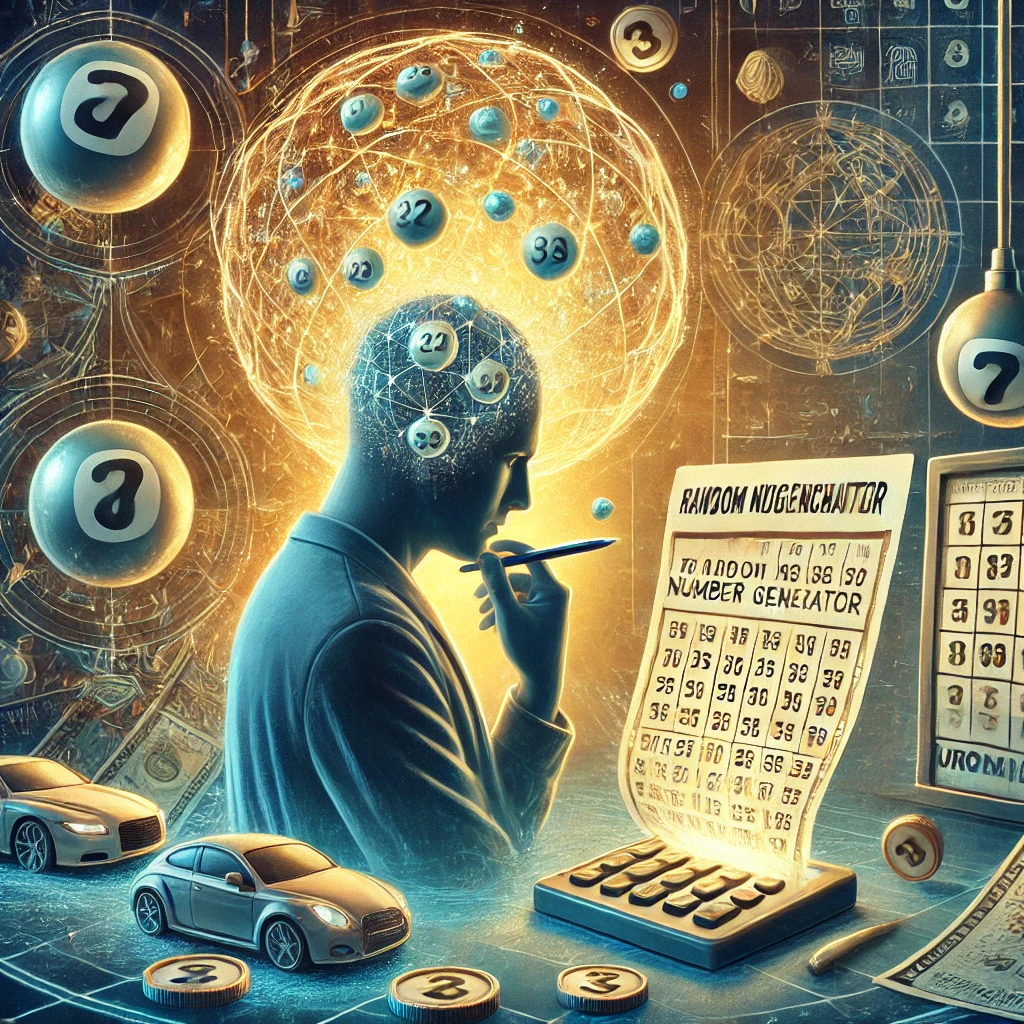The game of EuroMillions is one of the most popular lotteries across Europe, captivating millions with the tantalizing prospect of turning a small investment into a life-changing jackpot. As the odds of winning such massive sums are undeniably slim, players often seek strategies, techniques, and tools that might give them an edge. Among these is the random number generator (RNG), a tool used by many hopeful players to select their lottery numbers. But what exactly is a random number generator, and can it really improve your chances of winning? In this article, we’ll dive deep into how RNGs work, the psychology behind using them, and whether or not they can truly affect the outcome of your EuroMillions game.
What is a Random Number Generator?
At its core, a random number generator is a mathematical algorithm designed to produce a sequence of numbers that lack any discernible pattern. RNGs are used across a variety of fields, from cryptography and computer simulations to gaming and lotteries, to ensure that outcomes remain unpredictable. For EuroMillions, the use of an RNG allows players to quickly generate a set of random numbers to play, avoiding the need for manual selection.
RNGs come in two primary forms:
- True Random Number Generators (TRNGs): These devices rely on physical processes, such as atmospheric noise or radioactive decay, to generate randomness. Since these processes are inherently unpredictable, TRNGs are considered to produce “true” random sequences.
- Pseudo-Random Number Generators (PRNGs): Most RNGs available online or through lottery tools are pseudo-random, meaning that they use complex algorithms to simulate randomness. While these sequences are technically deterministic, they are still random enough for practical purposes and nearly impossible to predict without knowing the internal state of the algorithm.
For EuroMillions players, the most commonly used tools are PRNG-based, found on websites, apps, or in lottery terminals that generate quick-pick numbers. These generators are easy to use and save time, but does relying on them hold any tangible benefit when it comes to winning?
The Psychology Behind Using RNGs
When it comes to lottery games like EuroMillions, luck is undeniably the most crucial factor. However, the psychology of lottery players reveals that many rely on rituals, patterns, and specific strategies to make sense of an otherwise unpredictable game. This is where RNGs come into play.
For many, picking random numbers through an RNG feels like a balanced and fair way to select their tickets, ensuring that they aren’t biased by personal patterns, habits, or preferences. Some players believe that because EuroMillions itself draws numbers randomly, it makes sense to mirror this randomness when choosing their numbers. By using an RNG, players feel they are placing themselves on an even playing field with the lottery draw itself.
Here are a few psychological reasons why people gravitate toward random number generators:
- Avoiding Patterns and Bias: Many lottery players naturally fall into habits, such as picking birthdates, anniversaries, or “lucky numbers.” These personal numbers tend to fall within a narrow range (e.g., 1-31 for days of the month), potentially limiting their choices. An RNG eliminates this bias, ensuring numbers are spread across the full range of possibilities.
- Superstition and Luck: Some players believe that random numbers are “luckier” or that relying on an outside force (like a computer algorithm) removes human bias and invites fortune into the process. This detachment from personal responsibility can make players feel more comfortable about their chances.
- Convenience: Using an RNG is quick and easy. Instead of agonizing over which numbers to choose, players can generate a set of numbers in seconds, saving time and removing the stress of decision-making.
But while the psychology behind RNGs is compelling, do they truly provide any statistical advantage?
Can RNGs Improve Your Odds of Winning EuroMillions?
Unfortunately, the answer is no—random number generators cannot increase your chances of winning EuroMillions. The reason is simple: EuroMillions is a game of pure chance, and every combination of numbers has an equal probability of being drawn. Whether you choose the numbers yourself or rely on an RNG, your odds remain the same.
In EuroMillions, the odds of hitting the jackpot are approximately 1 in 139 million. These odds are fixed, regardless of how you select your numbers. It doesn’t matter whether your numbers come from an RNG, a sequence of birthdays, or a fortune cookie—every ticket has the same chance of winning.
However, one area where RNGs can provide a small benefit is in reducing the likelihood of sharing a jackpot. When players pick popular numbers (such as those based on birthdays or lucky digits), there is a higher chance that other players are choosing the same combinations. If those numbers happen to win, the jackpot may need to be split between multiple winners. By using an RNG, you might increase the chances that your numbers are more unique, reducing the likelihood of sharing the prize if you win.
The Case for Personal Number Selection
While RNGs offer convenience and neutrality, there’s also a case to be made for picking your own numbers. For some players, the act of choosing numbers is part of the fun, allowing them to inject a bit of personality and meaning into their game. Whether it’s a set of “lucky” numbers or a combination that holds personal significance, many people enjoy the ritual of manually selecting their entries.
There’s also the psychological aspect of control to consider. Some players feel more in control of the outcome when they actively participate in the number selection process. Even though the lottery is random, this sense of agency can make the experience more enjoyable and fulfilling for those who play regularly.
Using RNGs Responsibly: Avoiding Lottery Myths
It’s important to note that while RNGs can be a helpful tool, they shouldn’t be relied upon as a guaranteed path to success. Here are a few common myths to watch out for when using RNGs for EuroMillions:
- Myth 1: Random Numbers are “Due”: Some players believe that certain numbers are “due” to be drawn because they haven’t appeared recently. In reality, every number in EuroMillions has an equal chance of being drawn in every game, regardless of past draws.
- Myth 2: RNGs Have Secret Patterns: Some players believe that if they study an RNG long enough, they’ll uncover a pattern that can predict future numbers. This isn’t true—PRNGs are designed to be as close to random as possible, and any perceived pattern is purely coincidental.
- Myth 3: Playing More Tickets with RNGs Increases Your Chances: While playing more tickets increases your chances of winning, it’s important to keep in mind that each ticket still carries the same odds. Spending more money on additional tickets doesn’t necessarily increase your chances of a significant win, and it’s crucial to play responsibly.
Strategies Beyond RNGs: Group Play and Syndicates
While RNGs can be a fun and convenient tool for selecting numbers, other strategies exist for players looking to maximize their chances of winning. One of the most popular methods is joining a lottery syndicate, where a group of players pool their money to buy multiple tickets. By playing as part of a syndicate, you can increase the number of entries you have in the draw, boosting your odds of winning. However, the winnings are shared among the group, which can lead to smaller individual payouts.
Syndicates are particularly popular in EuroMillions, where jackpots can reach staggering amounts. By joining forces with friends, family, or coworkers, you increase the number of tickets you play without significantly raising your individual investment.
Conclusion: Is Using an RNG Right for You?
In the end, the choice between using a random number generator or selecting your own numbers comes down to personal preference. While RNGs don’t provide a statistical advantage in winning EuroMillions, they do offer convenience and the potential to avoid number-picking biases that could result in shared prizes.
Whether you prefer the ease of random selection or the control of hand-picking your numbers, it’s important to remember that EuroMillions—and any lottery game—is a game of chance. The excitement comes not from the certainty of winning, but from the anticipation, the dreams, and the “what ifs” that accompany each draw.
As long as you play responsibly and enjoy the process, there’s no wrong way to play EuroMillions. So, the next time you pick your numbers, whether through an RNG or your personal favorites, you can take comfort in knowing that the thrill of possibility is what keeps the game exciting.












Leave a Reply